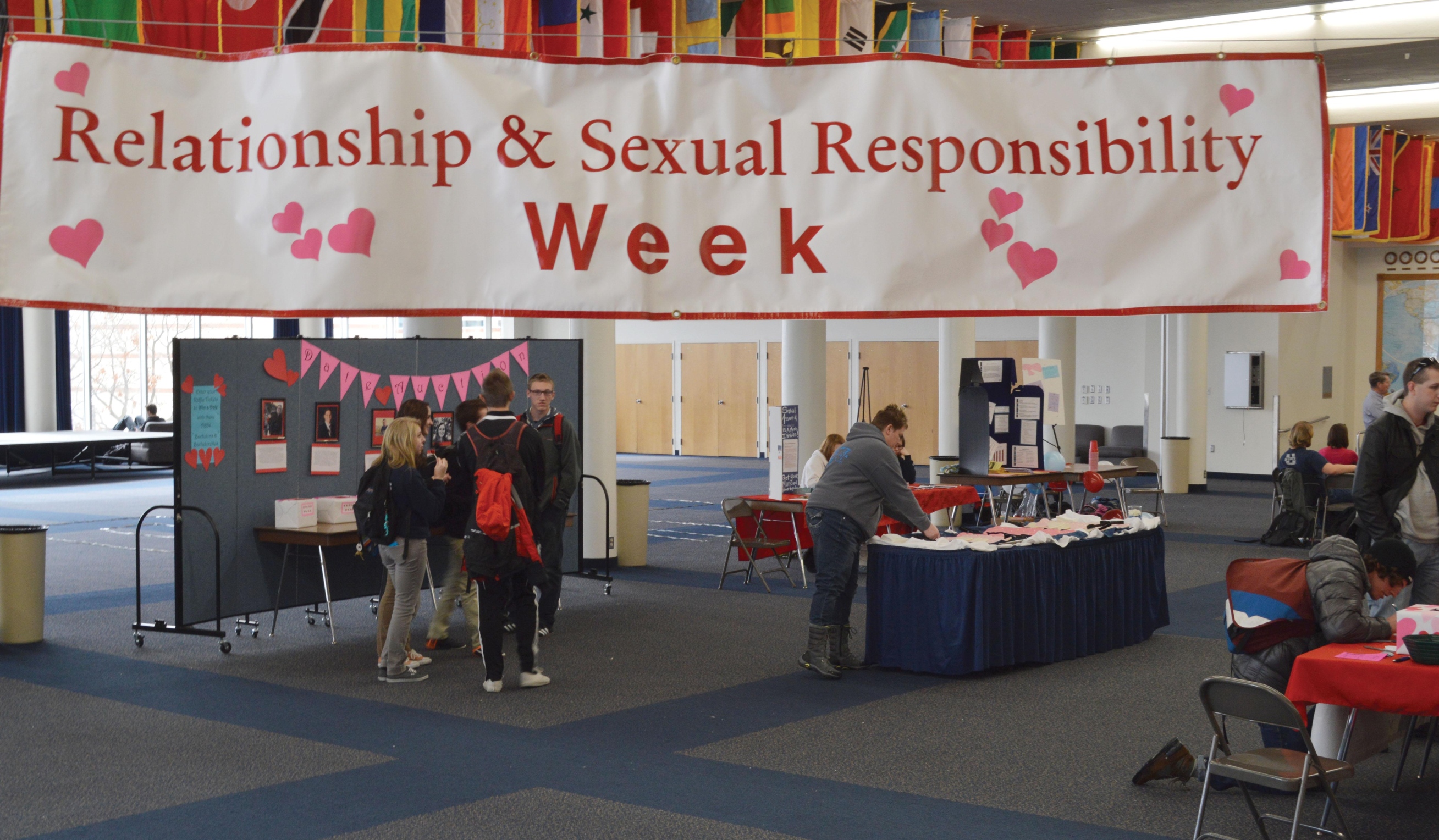Relationship wellness stressed
Love may be in the air this time of year, but not everyone knows what to do with it. Healthy Relationships and Sexual Responsibility Week, hosted by USU Student Health Services, aims to educate students about these issues.
“This time of year, most people reflect on the relationships they have or want to have,” said Ryan Barfuss, USU prevention specialist, who was in charge of the event.
“We want students to have the information they need to be safe and help them discover and create those relationships that last forever,” he said.
He said this applies whether they are married, single, looking or not.
The main event of the week was held Tuesday in the TSC International Lounge. Various tables were set up with displays, and an expert panel answered relationship questions.
One table hosted a raffle for date packages including dinner and Cache Valley Fun Park tickets, funded by the donations of local businesses. Another was auctioning dates with any of five USU students.
Ian Hancock, a volunteer at the Sexual Assault and Anti-Violence Information Office’s table, said there are no statistics collected for sexual assault on USU campus specifically, but the university does follow national trends. Between one in four and one in five women will be victims of assault during their college years.
“This can be anything from unwanted advances to more serious things like rape and stalking,” he said.
SAAVI was distributing “Man Cards” which contain a pledge for men “to never commit, condone or cover up any acts of sexual assault, rape, abuse or violence against any man, woman or child.”
Hancock said men need to be positive examples because they are an important part of campus and their perspective is necessary. SAAVI’s efforts are directed mainly toward prevention through grassroots efforts such as this.
“Women shouldn’t have to defend themselves or be afraid,” he said.
At 12:30 p.m. the expert panel convened, consisting of Hancock, Barfuss, social work grad student Ashley Atkins, and marriage and family therapist David Robinson. David Bush, director and research coordinator for CAPS, led the discussion.
The first question dealt with sensing red flags in an unhealthy relationship.
Barfuss said while much has changed since his dating years with the advent of social media and texting, “Unhealthy boundaries are if the person is checking your messages or voicemails and being over-controlling.”
Atkins said to be on the alert for abuse, whether emotional or physical, and to check in with oneself on what’s compatible and what isn’t.
In discussing “the one” who would be a perfect match in a relationship, the panelists felt it was an issue of taking time and really getting to know people.
“I don’t know if there’s only ‘one,'” Barfuss said. “We’re compatible with multiple people for the rest of our lives, but we definitely need to have common interests, backgrounds and usually beliefs. Otherwise we’re always struggling, fighting or working on something.”
With regard to trusting again after a bad relationship, Hancock returned to the theme of taking time.
“It’s OK to take a little time and regroup after a relationship and slowly ease into a new relationship, not just going head-on,” Hancock said.
Bush said the best resource he’s encountered in 20 years has been a book called “Rebuilding: When Your Relationship Ends” by Bruce Fisher, which offers 16 building blocks to recovery.
“A mistake a lot of couples make is to put trust in a person, but human beings are fallible,” he said. “It makes more sense to put trust in the principles that govern relationships. If both parties are committed to those principles, relationships will grow despite difficulties and disappointments.”
One question dealt with the effects of pornography on relationships. Robinson said many of his clients didn’t know what true intimacy was about because pornography had provided a “pseudo-connection” and completely taken over.
“Do they know how to reach out, communicate and be a partner?” he said. “It does take a lot of effort on both parts.”
“The person offended or violated often becomes a control freak,” Bush said. “The least effective strategy is to try to fix, control or manage the other’s behavior. It’s much more effective to explore our ability to influence, not control, each other in a healthy way, and establish a feeling of trust and understanding.”
The panelists were not enthused about kissing on the first date.
“It creeps me out,” Atkins said. “You miss out on a lot of things if you do the physical intimacy first. Take it slow and steady.”
“A lot of couples have ‘fallen into sex’ instead of falling into love,” Robinson said. “You really have to establish a friendship which will keep your marriage going. Without that foundation, you won’t do well as a couple.”
– c.r.nicholson@aggiemail.usu.edu
Twitter: @alien236

